When I saw “The Trip to Bountiful” back in 1985 with Geraldine Page, I found the movie plodding. Page’s portrayal of Carrie Watts was both sweet and sad, but I thought the play itself was as slow as molasses.
It was a talker, full of chatter and stories, but not much overt drama.
When I heard earlier this year that the play had been re-created with an African American cast, I couldn’t fathom sitting through it again. Then I learned that Cicely Tyson was superb in the role, and I changed my mind. I’m glad I did. The play still moved like a turtle, and about the only dash of kick-up-your-heels energy came when Tyson’s Carrie did a little jig while recalling a dance she had attended in a town near Bountiful.

The “Bountiful” story was written in the 1950s by Horton Foote, a Texan who drew on his own upbringing to saturate both this story and the many others that formed his plays. It is a southern story – or southwestern, much the same – with the universal appeal of longing for that “something,” whatever it is.
I went to see the play last weekend in New York with some friends. Sitting there listening to Tyson/Carrie, I realized that the drama was in the words and the stories that Foote was channeling through her. To appreciate the play, you have to love just being still and enjoying a story being told to you. (One of my friends felt that the first part of the play was tepid, but that it picked up in the second half.)
The storytelling reminded me of Denzel Washington’s character in August Wilson’s “Fences,” who was full of tales about his life and a missed opportunity to be a Negro Leaguer. Wilson’s plays, too, are heavy with stories, but the drama is also derived from the actions of his characters.
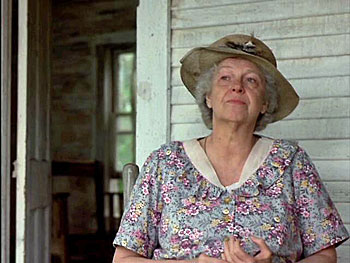
Tyson was engaging, and co-stars Vanessa Williams and Cuba Gooding Jr. backed her up with their performances. It was very clear why she had won a Tony Award for her funny and determined Carrie. Page won an Academy Award for Best Actress in 1985 for the role in the movie. Page – who also played the maid Peggy in the home of the family that hired Bigger Thomas in the 1986 “Native Son” – died in 1987.
“Bountiful” was ripe with stories, and it was like listening to Foote tell them himself. I suspect that he got a kick out of speaking through Carrie, sharing experiences that left a major impression on him, enlivening characters that can sometimes make southern life so darn interesting.
The best of the southern writers are very good at doing that. They don’t have to make up their characters because these folks live across the street or down the road, or as Dixie Carter’s Julia of “Designing Women” used to say: it’s the crazy aunt we keep in the attic.
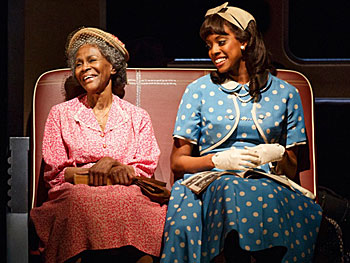
It’s Emily in William Faulkner’s “A Rose for Emily,” Janie in Zora Neale Hurston’s “Their Eyes Were Watching God,” Frankie in Carson McCullers’ “The Member of the Wedding,” the men and women in Jean Toomer’s “Cane,” Celie in Alice Walker’s “The Color Purple” and the Grandmother in Flannery O’Connor’s “A Good Man Is Hard To Find.”
They were southern storytellers, but their experiences – and therefore their stories – were decidedly different. Some of them learned at the feet of their parents and relatives, much like the southern-born Philadelphia storyteller Linda Goss, who was “raised on” storytelling from her granddaddy Murphy, her parents, and her aunts and uncles as a child in Alcoa, TN.
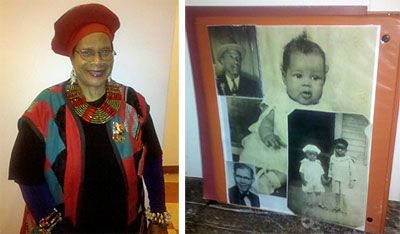
She told me one story that only could have come from an African American experience:
“My mother told me this story out of the clear blue sky one day when she was in the kitchen. I think his name is Pappy, they call him Pappy. This would be her grandfather or her great-grandfather and how he was known for being a real good cook and could cook fried chicken. And just about every other Saturday or on a particular Saturday – you never knew when – just as dusk was coming they could hear these horses and it would be, they called them the nightriders or the paddy-rollers, and they would come up to this place and they would make him kill one of his chickens and fry chicken for them.
They would eat that chicken and drink and then they’d shoot at his feet and make him dance for them. He would buck-dance for them. I was also told that the women knew to be hidden and to stay hidden. And if they asked for the women he would say they aren’t here. I never heard the whole story. I don’t know if the women in my family at the time were abused or raped. They could’ve been, and he wouldn’t have been able to do anything about it. This went on for some time.
Why she told me this story I don’t know. In those days, when people told you those stories you didn’t ask questions. You didn’t talk back. You just listened. So I didn’t get the full story. Two of my uncles told me the same story. And now they have all passed away.”
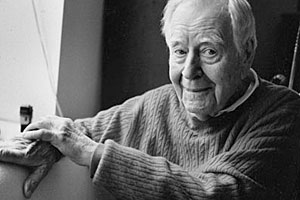
Foote grew up in the same America of small towns but on a different side. He was born in 1916 in Wharton, TX, near Houston, listening to – and remembering – the stories he heard from the people around him. He started out as an actor but later was encouraged to write plays. He both wrote his own plays and acted in them.
During the 1950s, producer Fred Coe at NBC-TV hired Foote as a writer. Foote first wrote scripts for a weekly TV children’s show featuring the cowboy Gabby Hayes, Roy Rogers sidekick. He created plays on the side, and also wrote shows for CBS-TV.
Movies came next: Foote wrote the 1961 screenplay for Harper Lee’s “To Kill A Mockingbird” and won his first Academy Award. He won his second Oscar for “Tender Mercies” in 1983. His play “The Young Man from Atlanta” won a Pulitzer Prize in 1995.
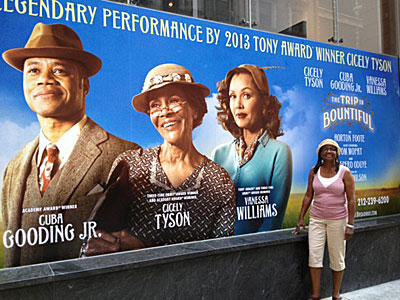
He wrote “Bountiful” in the 1950s while at NBC (it first showed on the network in 1953). He had an idea for a TV drama, according to his 2009 obituary in the New York Times, but couldn’t get it from his brain onto the paper. So he told his boss the plot:
“It’s about an old lady who wants to go home,” Mr. Foote said.
“That’s it?” Mr. Coe asked.
“That’s it,” Mr. Foote replied.
“Go ahead,” Mr. Coe said. “I trust you.”
And that’s about it. “Bountiful” stripped bare is basically about a woman who wants to go back home. But as you sit in the dark theater watching the movie or the play, you know that it won’t be the place of her remembrances. No place ever is.
